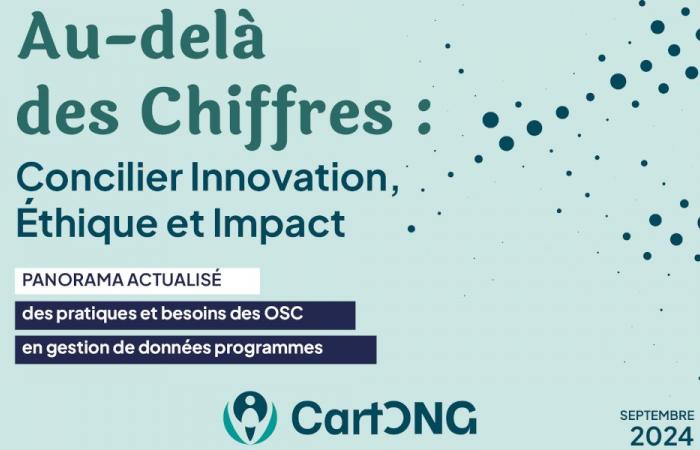Four years after the publication of the study “Program data: the new Eldorado of international solidarity? » in 2020, CartONG continues to explore recent developments as well as the less visible consequences of the “data-ization” of the work of humanitarian CSOs.
With a broader approach, in terms of geography and types of actors, the study attempts to analyze the impact of recent developments in both the information and data management sector, as well as those of international solidarity (AI, cybersecurity, accountability, localization, etc.).
After reflecting on the relative lack of evidence for the impact of data on decision-making, and data collection still primarily driven by upward reporting, as well as gaps in data quality, the The study focuses on the state of professionalization in the sector. We also examine the current needs of CSOs in terms of solutions and resources. Faced with the profusion of technical solutions, the challenge seems more to consist of identifying adequate solutions according to the needs of the CSO (including needs assessment), obtaining sufficient support and funding to implement them correctly , and to have access to resources and learning opportunities.
All these developments must, however, take into account the risk of a humanitarian data system operating at two speeds, with a growing gap between a few global actors (UN, large CSOs, donors, NSIs from the North, etc.) and most of the others (the most CSOs, including small international CSOs and local/national CSOs, NSIs from the South, etc.). In the absence of corrective measures, local and smaller actors risk entering a vicious circle where they will experience technical developments and increasing accountability requirements without having the resources necessary to appropriate or control them.
The study then examines current and future challenges in humanitarian data management highlighted by our survey respondents: firstly, data governance and localization, and accountability to affected populations, two topics that imply a profound transformation of our vision of data management. Next, data-driven decision making, coherent strategies and data culture, the three components of successful data integration in CSOs. We then cover the related topics of responsible data management and cybersecurity, two critical risks for the sector. Finally, we address standardization, data sharing & open data, the legal and contractual environment, the reasoned use of AI, technological sustainability, and controlled digital issues, all issues which involve adapt to developments while preserving the capacity for action of CSOs.
The study concludes with recommendations for the humanitarian system, for CSOs, for network heads, for donor and UN agencies, and for specialized support to CSOs, in terms of promoting collective learning and critical thinking, continued proactive investment in program data and improved practices, and how to help CSOs address the data challenges outlined in the report.
A webinar presenting the study was organized on Tuesday October 8 and can be viewed here:






